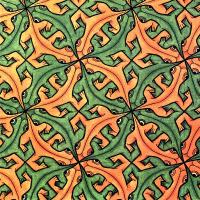Aportes: 13
Idioma: English
ShannonCC (Mostrar perfil) 14 de noviembre de 2013 21:28:43
And, just out of curiosity, in a language like Esperanto, where there is no country of origin and the creator is dead, who makes new words? I read on another site that Esperanto has it's own word for "computer" and immediately though well huh, who decided on it?
Clarence666 (Mostrar perfil) 15 de noviembre de 2013 02:10:08
Is there a good Esperanto dictionary people recommend?>> "Vortaroj: (mi kreas novan apartan fadenon)" <<
> in a language like Esperanto, where there is no country of origin
the "origin" of Esperanto is everywhere rather than nowhere

la "origino" de Esperanto estas cxie pli gxuste ol nenie

> and the creator is dead
the "creator" of English is dead too

> who makes new words? I read on another site that
> Esperanto has it's own word for "computer"
komputilo ???
AFAIK there is a language purity commission happily adding new words all the time, but rather unable/unwilling to fix (possible) old faults. Like in other languages.
ShannonCC (Mostrar perfil) 15 de noviembre de 2013 14:31:53
 But I was thinking of an article I read awhile back about how in France, they (who is "they"?) do not allow foreign words in the vocabulary and if a new technology comes up, they make a new French word for it. In most other languages it comes about more naturally from the people speaking it, it spreading, etc. And in English of course we have no issue with foreign words (which is why our language is such a fun mess, lol!). But I was wondering how that would happen in a language when some of the speakers are in China, some in Hungary, some in the US, you know? It's not as easy to spread the new words.
But I was thinking of an article I read awhile back about how in France, they (who is "they"?) do not allow foreign words in the vocabulary and if a new technology comes up, they make a new French word for it. In most other languages it comes about more naturally from the people speaking it, it spreading, etc. And in English of course we have no issue with foreign words (which is why our language is such a fun mess, lol!). But I was wondering how that would happen in a language when some of the speakers are in China, some in Hungary, some in the US, you know? It's not as easy to spread the new words. Were you being sarcastic about the language purity commision or is there really a group that does things like this? Just totally curious.
And when I read another thread on dictionaries I found out that thing to the right is an online one, lol! I didn't notice that
 (also had the chat pointed out to me the other day).
(also had the chat pointed out to me the other day). erinja (Mostrar perfil) 15 de noviembre de 2013 15:00:36
There is an Academy of Esperanto. But they aren't some kind of authoritarian group. They make new words official and give official definitions for these words. What happens is that new words come into use in the Esperanto community, and when the Academy sees that a certain word seems to have come into stable use, they make that word official. For a new concept, you might have multiple competing words. Generally, the Academy waits to see which word will "win" over the others and come into general use, and they usually make that one official. New words are created in Esperanto by people making up a word and using it, ordinary Esperanto speakers. Then you see who catches on and starts using that word! It's as simple as that, it comes from ordinary Esperanto speakers like you and me.
New words can be formed by two main paths - either 'esperantizing' an existing international word (computer = komputer/o) or creating a word with existing Esperanto roots (computer = komputilo -- komput/il/o). In the case of "computer", you still meet a few people who say "komputero", mainly older people who don't actually use a computer. But the word that has clearly "won" in this case is komputilo. Interestingly, the Academy initially recommended "komputero", but the Esperanto-speaking community at large had other ideas, so now the word is "komputilo"!
yyaann (Mostrar perfil) 15 de noviembre de 2013 15:01:09
ShannonCC:LOL! Ok, good pointsDepends really. Computer translates as "ordinateur" but email can be said "email", "mail", "courriel" or "courrier électronique". The académie française mostly suggests but is generally unsuccesful to influence how people speak.But I was thinking of an article I read awhile back about how in France, they (who is "they"?) do not allow foreign words in the vocabulary and if a new technology comes up, they make a new French word for it.
In most other languages it comes about more naturally from the people speaking it, it spreading, etc.Chinese: because chinese characters are not well suited to write foreign words, most of the time they rely on the internal possibilities of the language. One of the word for "computer" translates as "electric brain". The same thing can be observed in Esperanto. In my opinion it's a good thing, because it's easier to guess the meaning of such words than that of so-called "international" words which in fact may or may not be known and used in every language.
Spanish: some words are adopted with a spelling that reflects the spanish pronunciation, other are adopted with the original spelling but can be pronounced differently (wifi is pronounced like weefee or sometimes gweefee), other words are translated ( hamburger is "hamburguesa" and computer is "ordenador", rarely "computador" ).
Slavic languages: the spelling is generally changed to reflect the pronunciation in the target language. The same thing can be observed in Esperanto (Wikipedia -> Vikipedio) which again is a good thing IMHO, as it allows to use Esperanto's grammatical endings with such words more easily and preserves the consistency of its spelling system.
jismith1989 (Mostrar perfil) 15 de noviembre de 2013 15:15:12
In addition to what Yyann said about new words coming into languages (especially in relation to language contact), another interesting phenomenon is the calque, where a word is taken from another language but translated across literally, like the French word gratte-ciel which both literally and actually means skyscraper and comes from the English. Or rascacielo in Spanish. Esperanto does likewise... ĉielskrapulo [lit. sky-scrap-er]!
Plus words for new technologies tend to be similar in all kinds of languages anyway, from Hindi [Kampyūṭara] to Japanese [Konpyūta] to German [der Komputer] to Swahili [kompyuta] to Albanian [kompjuter], because most of them are based on English, due to our linguistic (not to mention economic) imperialism.
Nile (Mostrar perfil) 15 de noviembre de 2013 17:32:00
Which is why I try to follow ISO rules in Esperanto where Esperanto has no conflicting rule.
erinja (Mostrar perfil) 15 de noviembre de 2013 17:38:10
BTW I don't think it's easy to dictate how Esperantists speak. If it's not in the Fundamento (and even if it is), you can't force people to talk a certain way. Esperantists are a "do it your own way" kind of bunch, full of idealists and free-spirits. It's like herding cats.
orthohawk (Mostrar perfil) 15 de noviembre de 2013 22:25:12
erinja:What do you mean by following ISO rules?I find this view rather surprising from one who is wont, when reform is mentioned, to say (in so many words) "well, you can do what you want but you won't be speaking Esperanto" not to mention who joined in the cabal to castigate me for using a form found in the Fundamento.
BTW I don't think it's easy to dictate how Esperantists speak. If it's not in the Fundamento (and even if it is), you can't force people to talk a certain way. Esperantists are a "do it your own way" kind of bunch, full of idealists and free-spirits. It's like herding cats.
Bruso (Mostrar perfil) 15 de noviembre de 2013 22:59:50
I found this old dictionary on-line.
The most interesting thing about it is the extensive sections at the end: a lengthy gazetteer and a listing of classical and modern proper names.


